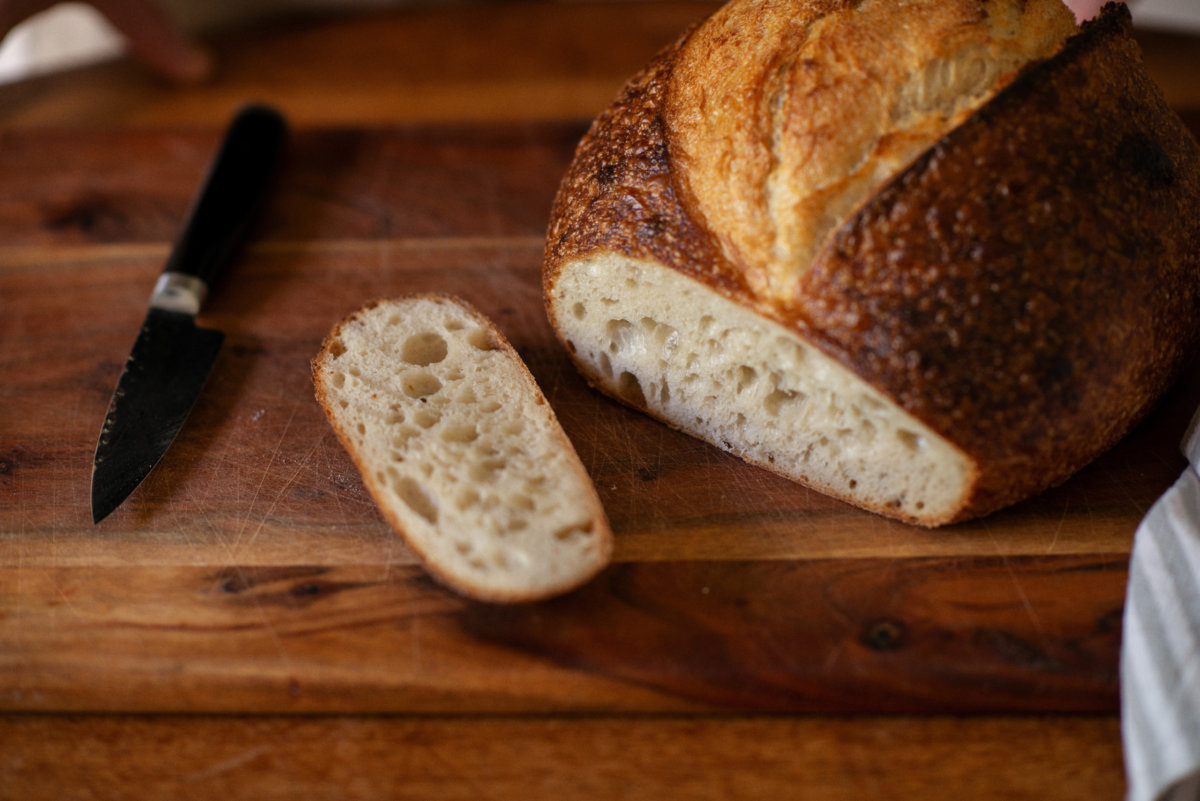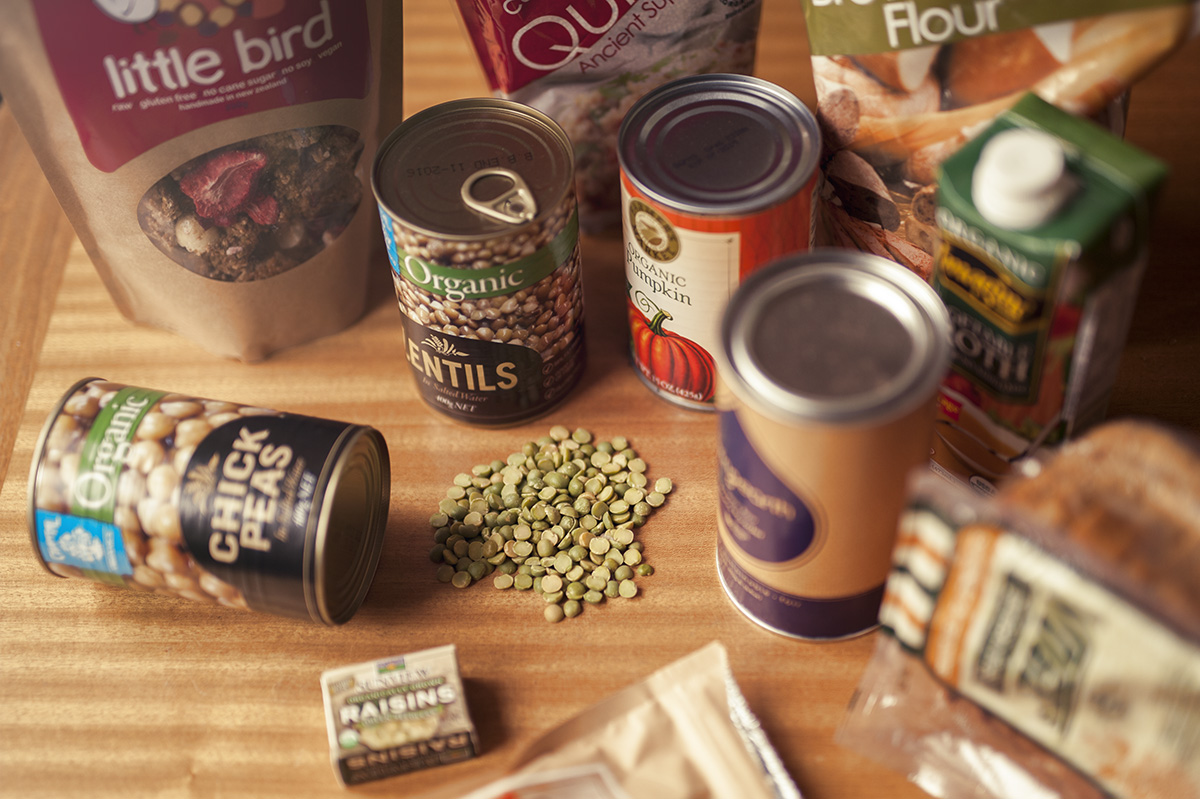
114—
Artisan Sourdough Bread

Its time to hit the brakes on a concerning matter I’m experiencing with my clients. People seem more confused than ever about what constitutes a carbohydrate. And what’s more worrisome, people are now ‘turning dirty’ on eating these confusing carbs.
Everyone seems so ‘carb-shy’ lately. So much so that when I inform them, ‘Yes — of course vegetables are carbs’, they are perplexed. They know veges are good for them, but according to ‘their sources’ carbs are bad. In most cases, carbs are very good for you. Among many other benefits, carbohydrates are our primary source of energy. They provide us with necessary vitamins & minerals, and they should make up the bulk of your diet (around 60%).
We shouldn’t be ‘turning up our noses’ at one of our three sources of fuel (protein + carbs + fat). We don’t want to start ostracizing carbs like we did with ‘fat’ for so many years.
We need to stop blaming certain food groups for all our health woes — and start looking to ourselves. Perhaps it is how we’re eating our food groups that is the issue. We need to think about how we’re preparing them, the amounts we’re eating, how often we’re eating them, and the way we’re digesting them.
I’ll admit it can get quite confusing. There are a lot of ways of describing the different types of carbs (with their various chemical structures). For example:
complex carbs = unrefined carbs = starches
simple carbs = simple sugars = sugar
refined carbs = simple carbs = processed carbs
Rather than getting confused about the different chemical structures and the varying ‘sugar’ contents of the different types of carbs, why not make things more simple? I like to think of the types of carbs in terms of the fibre and nutrients they contain. For example:
A whole-food that contains fibre and nutrients is a complex carb (fruit, veges, whole-grains and legumes e.g. peas, beans and lentils).
In most cases these are good for you. A Naturopath generally advises you only eat these types of carbs. But will make their recommendations, based on your specific health concerns and objectives.
A whole-food that does not contain fibre is a simple carb (molasses, maple syrup, honey, and pure juice)
In most cases these are not particularly good for you. They overburden the liver, which can lead to various metabolic concerns. They are highly addictive, they increase your appetite, and can lead to increased fat storage. A Naturopath may sometimes advise you eat these type of carbs (in certain situations).
A whole-food that has been stripped of its fibre and its nutrients is a refined carb (white bread/rice/sugar)
In most cases these are bad for you.They affect your blood sugar control, and leech you of important nutrients. A Naturopath would generally not advise you eat these types of carbs at all.
Note: I prefer to clearly demarcate between ‘sugars’ that are naturally occurring and those that have been tampered with (have had their important health promoting constituents removed). This is better than lumping them together in one category which I believe creates a great deal of confusion. To simplify further, I recommend my clients refer to table sugar (cane sugar) as ‘sugar’, and anything else (honey, maple syrup, molasses) as simple carbs.
Not only does this stuff offer no nutritional value, it actually depletes your body’s stores! (The nutrients and fibre have been removed and all that is left is the starch or sugar).
Your body needs nutrients to break-down food. If you’re not providing these nutrients in your diet, your body takes them from your stored reserves – leaving nothing but an offhanded I.O.U.
There is currently a lot of ‘anti-carb’ attention. This has lead many of us to mistakenly think that all carbs make us overweight and unhealthy. Things get confusing when various diets encourage you to avoid (certain) carbs. For example:
—The Atkins diet (low carb)
—The Ketogenic diet (low carb)
—The FODMAPS diet (restrictions on various carbs)
—The GAPS diet (restrictions on various carbs)
—The Real Food Chef by Dr Libby Weaver (refined sugar free + dairy free + gluten free)
—The ‘Paleo’ lifestyle (grain free + legume free + dairy free)
—The I quit sugar 8-week program by Sarah Wilson (no sugar)
How can a food group that’s supposed to make-up the biggest chunk of our diet be causing us such grief?

What about our poor digestive systems!
Our three food groups get digested primarily in different parts of our gastrointestinal system.
Carbs
Digested in the mouth (alkaline) and in the small intestine (alkaline)
Protein
Digested in the stomach (acid) and in the small intestine (alkaline)
Fats
Digested in the small intestine (alkaline)
If you get a bit of everything on your fork (protein + carbs + fat) and eat everything on your plate, then you will confuse your digestion. You will slow it down, and render it inefficient. However, if you want to make your digestion quick and more complete you should consider eating less, and separate the food groups. Poor food combining slows down the digestive system by neutralising digestive secretions. When this happens, you increase the chances of your intestinal flora fermenting your food long before you can digest and absorb the nutrients yourself. When this happens it manifests in your body as gas — bloating, pain, burping, or flatulence. This improper digestive process may have been labeled as: IBS (Irritable Bowel Syndrome), SIBO (Small Intestine Bacterial Overgrowth), or Candidiasis (a Candida overgrowth).
Note: Not chewing your carbs thoroughly puts a great stress on your pancreas (which produces digestive enzymes for all the food groups).
For a selection of blog-posts, please click this link.
Only eat this dire non-food very occasionally or when absolutely necessary.
This type of carb can be very helpful (in moderation) for the following situations: intense exercise, recovering from vomiting or diarrhoea, or when nurturing your inner child (having a wee goodie).
They give us sustained energy and nutrients. They fill up our bellies, and help us to poo (they are therefore helpful for maintaining a healthy body weight, and for cleansing our systems) They help us to feel calm and happy. That’s why we crave them when we’re PMS (ladies!) or when we’re feeling ‘down-in-the-dumps’ (everybody!)
You’re either not eating the right varieties of carbs, or you’re eating too many for the amount of exercise/hard work you’re doing. Or, you may have a hormonal or digestive issue — in this case, please see your Naturopath!
It would pay to consider talking to a Naturopath if you’re experiencing digestive issues when you eat fruit, veges, whole-grains or legumes. They can advise you on whether the particular food is actually an issue for you (a food intolerance), or whether it is the way you are preparing it, eating it, or digesting it. They can help to re-establish proper gut flora, and help to strengthen your digestive organs. This will essentially ‘reset’ you, so that you may eventually be able to go back to your old food combining ways!
Lisa Fitzgibbon is a degree qualified (2006), experienced and registered Naturopath & Medical Herbalist. She runs her own private practice – OOMPH in Grey Lynn, Auckland, New Zealand.
Lisa has been involved in the Natural Health industry for 16 years. She draws on her professional training and experience, as well as her own personal experience to bring you realistic, holistic health advice.
Book onlineSubscribe to LISA SAID SO
Subscribe to the LSS newsletter to get updates on a very irregular basis.
Sorry for the interruption!
You seem to be interested in what Lisa has to say. To be updated when new articles are published, or we have news to share, enter your email below. Thanks!